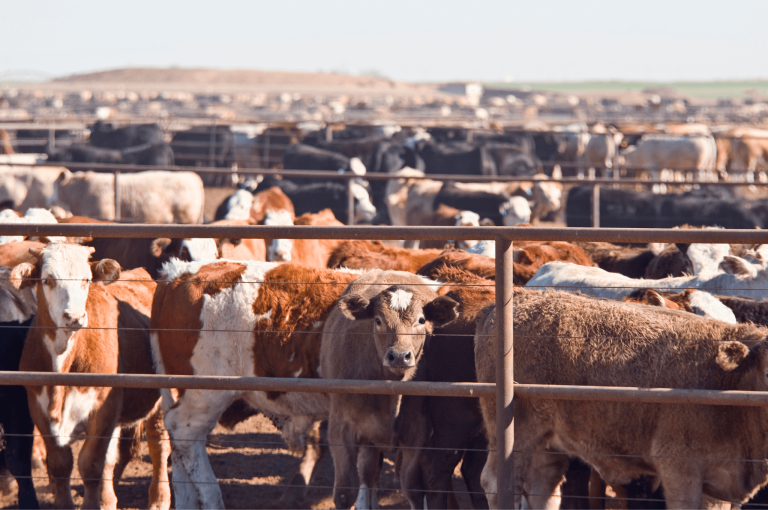
840 million people suffer from chronic hunger and 24,000 individuals perish daily from hunger-related causes. Globally, one in seven people suffers from chronic hunger, and in the United States alone, more than 30 million people, including 12 million children, are classified as “food insecure”, meaning they lack reliable access to affordable and nutritious food.
Surprisingly, it’s not climate change, geopolitical conflicts, or a lack of food that primarily causes world hunger. It is animal agriculture. We produce enough grain globally to feed twice the global population. Yet, a significant portion of these edible crops is used to feed farmed animals rather than being consumed directly by humans. Each year, over 70 billion land animals are raised and slaughtered for human consumption. This translates to over eight farmed animals being killed annually for every single human on Earth.
Eating meat is deeply ingrained in many cultures, and many people are simply uninformed about how animal agriculture directly contributes to global food insecurity. The powerful animal agriculture lobby also works to obscure and downplay the environmental, social and ethical costs of their practices, as it threatens their profits.
Livestock farming involves the domestication of wild animals and continuously artificially impregnating them to maximize their meat, milk, or egg production. This process is a waste of edible food on global resources. Livestock farming occupies 77% of agricultural land because we must grow vast quantities of grains to feed these animals. For instance, the grains and soybeans fed to animals in the US alone could provide enough food to feed the world’s hungry.
Not only do we have to feed 70 billion animals every year, but many farmed animals require significantly more food and water than humans. For example, cows consume 30-50 gallons of water and over 100 pounds of feed daily.1 Animals use the majority of their dietary energy intake just to maintain their own bodily functions, growth, and movement, with only a small portion of the food animals eat becomes muscle tissue or ‘meat’. For every 100 calories of edible plant food fed to animals, only about 40 calories become milk, 22 calories become eggs, 12 calories become chicken, 10 calories become pork, and a mere 3 calories become beef.2 A significant portion of animal carcasesses are not edible, including blood tissue, fat, hides, hooves, horns, bones, and lungs. In contrast, plant-based foods are significantly more efficient, requiring only 1-2 calories of input per calorie of the final food product. Crops such as soy and lentils produce, pound for pound, as much protein as beef, and sometimes more.3
By eliminating animal agriculture, we could feed the growing human population using a fraction of the crops currently used to feed farned animals. We could also reduce the agricultural land needed by 75%4 and other natural resources, preventing further deforestation, drought, and climate change, all of which already disproportionately affect marginalized communities.
By embracing plant-based diets we can unlock a future of global food abundance, and a world where animals are no longer exploited. There is significant evidence that 100% plant-based diets are healthy, nutritionally adequate and optimal for humans at all stages of life.5 Vote with your wallet and your actions to abstain from eating animals or any animal products, including dairy and eggs. Participate in or organize educational events, social media campaigns, and community outreach to highlight how adopting a plant-based diet could end world hunger. Write to your elected representatives urging them to end subsidies for animal agriculture, implement taxes on animal products, and redirect funds towards plant-based food innovation and production.
- https://www.ars.usda.gov/ARSUserFiles/50901500/px-based_v3.2/educ-matrls/pdfs/HO_what-cows-eat.pdf ↩︎
- https://ourworldindata.org/grapher/energy-efficiency-of-meat-and-dairy-production ↩︎
- https://awellfedworld.org/issues/hunger/why-we-need-plant-based-approaches/ ↩︎
- https://ourworldindata.org/land-use-diets ↩︎
- https://pubmed.ncbi.nlm.nih.gov/27886704/ ↩︎